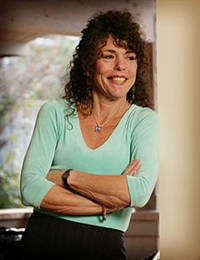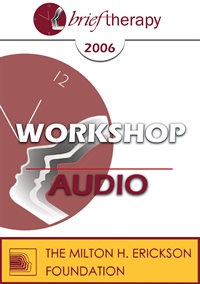BT06 Workshop 30 - It Takes One to Tango - Michele Weiner-Davis, MSW
- Average Rating:
- Not yet rated
- Topic Areas:
- Workshops | Relationships
- Categories:
- Brief Therapy Conference | Brief Therapy Conference 2006 | Pioneers in Couples and Family Therapy
- Faculty:
- Michele Weiner-Davis, LCSW
- Duration:
- 2:19:05
- Format:
- Audio Only
- Original Program Date:
- Dec 09, 2006
- License:
- Never Expires.
Description
Description: Weiner-Davis offers a clear framework for conducting relationship therapy when only one partner is present. Drawing on her “Divorce Busting” model, she emphasizes the value of action-oriented, solution-focused work and the surprising power of individual change to shift relational dynamics. With case examples and practical tools, she illustrates how therapists can help clients foster reconnection, even in complex or high-stakes situations.
Syllabus Description: That only one partner is willing to seek relationship therapy should not deter therapists since there is much that can be accomplished. In fact, there are occasions when working with only one partner is preferable. This workshop will explore these situations and offer therapists a conceptual framework for conducting relationship-oriented sessions with one partner present.
Educational Objectives:
- To describe how seeing couples with divergent goals can be detrimental.
- To describe how to ascertain the absent partner's views and goals for the relationship.
*Sessions may be edited for content and to preserve confidentiality*
Credits
Handouts
| Timestamped Transcript (1010.1 KB) | 24 Pages | Available after Purchase |
| Timestamped Transcript (952.8 KB) | 22 Pages | Available after Purchase |
| Ericksonian Learning Snapshot (246.7 KB) | 2 Pages | Available after Purchase |
Faculty

Michele Weiner-Davis, LCSW Related Seminars and Products
Michele Weiner-Davis, LCSW is the Founder of The Divorce Busting Center in Boulder, Colorado. She is a popular TEDx speaker and the author of eight books including, Healing From Infidelity, and the bestselling Divorce Busting and The Sex-Starved Marriage. She is the recipient of several prestigious awards including the Outstanding Contribution to Marriage and Family Therapy Award from AAMFT.


